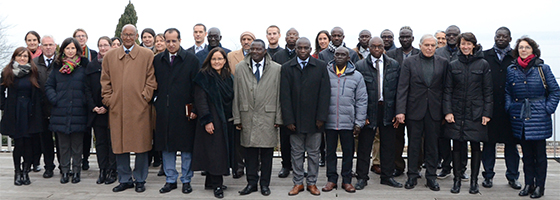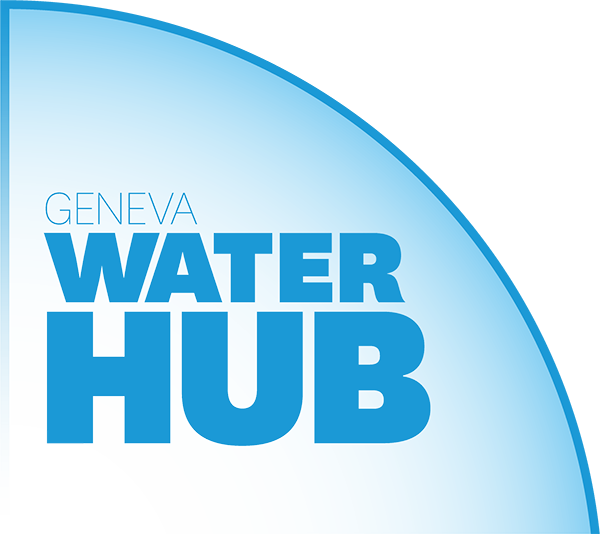Water Diplomacy at the Service of States in West Africa

The four States sharing the Senegalo-Mauritanian aquifer basin met in Geneva on 6-7 February 2019 for a roundtable on the theme of the transboundary collaboration on this strategic water resource currently threated by salinization, pollution and climate change.
Two experts of the Platform for International Water Law, Mara Tignino and Komlan Sangbana, have participated in this roundtable, jointly organised by the Geneva Water Hub, a centre specialised in hydrodiplomacy attached to the University of Geneva (UNIGE), and the Secretariat of the Convention on the Protection and Use of Transboundary Watercourses and International Lakes hosted by UNECE.
With an area of approximately 350,000 km2, the Senegalo-Mauritanian aquifer basin is the largest basin in the Atlantic margin of North-West Africa. The groundwater it contains is a strategic resource for the four aquifer States, The Gambia, Guinea Bissau, Mauritania and Senegal, on whom populations - which number more than 24 million people in total - depend to a large extent for their access to drinking water and various sectoral uses. Some important cities in the region, such as Bissau and Dakar, rely on it for an essential part of their water supply. However, States face today several challenges such as the risks associated with salinization, various sources of pollution or the impact of climate change on the variability of precipitations necessary for groundwater recharge. This situation is all the more worrying in the absence of a cooperation framework at regional level and in view of the need to develop knowledge of these aquifer systems.
A first step towards enhanced cooperation
On 6-7 February 2019, the roundtable on transboundary collaboration on the Senegalo-Mauritanian aquifer system brought together the four aquifer States and the main transboundary basin organizations of the region: the Senegal River Basin Development Organization and the Gambia River Development Organization. The participation of the latter allowed the exploration of institutional innovation avenues for their potential involvement in groundwater management in addition to their surface water management mandate.
The roundtable provided thus a platform for exchanges between the four States and basin organizations, with active contributions from experts and technical and financial partners. It facilitated an update on the current knowledge of the aquifer system, an exchange on its related management issues and the identification of possible options for cooperation to promote the sustainable management and use of the aquifer. In particular, based on the Policy Guidance Note on the Benefits of Transboundary Water Cooperation, developed under the Water Convention, States identified a wide range of benefits that enhanced cooperation on the Senegalo-Mauritanian basin could generate, both in terms of economic, social and environmental benefits (e.g. the possible increase of revenues in small irrigated agricultural projects and the reduction of production and operating costs for drinking water supply), as well as benefits from regional economic integration and peace and security (e.g. regional stability conducive to investments and combatting rural depopulation).
Towards concerted, informed, resilient and sustainable management
Among the main recommendations of the meeting, the States agreed to set up a Working Group to carry out a comprehensive inventory of the existing knowledge of the basin and to outline a joint project for resilient resource governance for the sustainable and peaceful development of the region. This project could be supported by a consortium of partners, including the technical and financial partners that contributed to the roundtable (AfDB, BGR, GWH, IAEA, IGRAC, SDC, State of Geneva, UNECE and UNESCO).
The theme of this roundtable is in line with the recommendations of the Global High-Level Panel on Water and Peace, that the Geneva Water Hub contributes to implement, and which specifically stress the importance to bolster transboundary and intersectoral cooperation on groundwater. Laurence Boisson de Chazournes was a member of this Panel.
This roundtable is also part of the activities under the Water Convention, which mandate is to strengthen cooperation through the development of agreements and arrangements for the joint management of transboundary waters, both surface and groundwater. Senegal’s recent accession to the Water Convention and the interest shown by the other riparian States in acceding to the Convention reflect the increased importance of the Water Convention as a universal instrument of hydrodiplomacy.
28 Feb 2019

